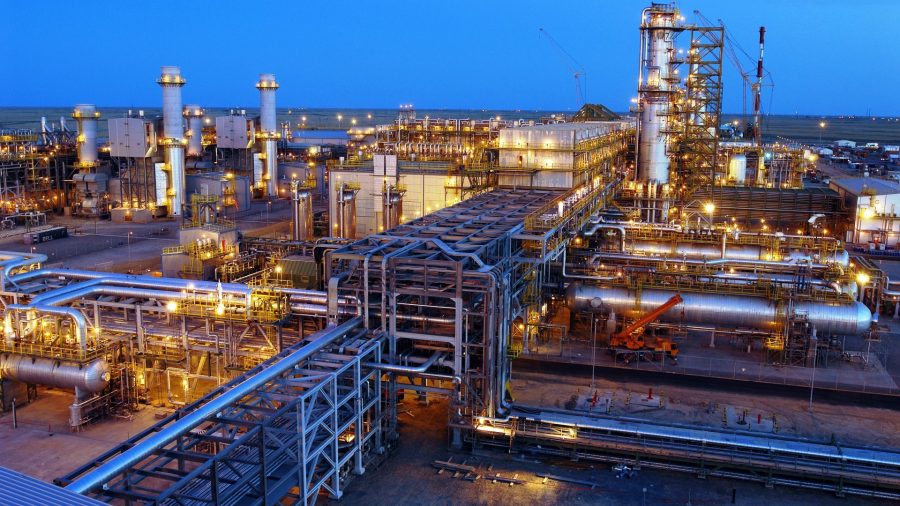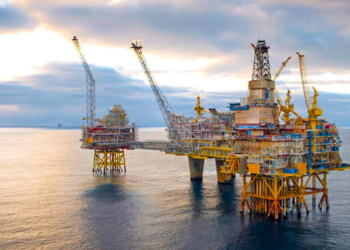The Nigerian oil and gas sector accounted for 93.8% of the total export revenue in Q4 2018, according to the Central Bank of Nigeria’s Balance of Payment (BOP) brief which was published Monday.
Out of the total sum of $16,655.49 million realised from export trade during the period, $15,620.90 million was from crude oil and gas exportation.
“Export earnings rose by 2.8 per cent to US$16,655.49 million in Q4 2018 when compared with Q3 2018. It also indicated an increase of about 27.6 per cent when compared to
corresponding Period of 2017. Earnings from crude oil and gas, which accounted for 93.8 per cent of total export earnings during the review period, increased by 2.1 per cent to US$15,620.90 million in Q4 2018 when compared with the preceding quarter. Earnings from non-oil and electricity exports increased by 15.0 per cent to US$1034.59 million in Q4 2018 when compared with the preceding quarter.”
More highlight of the CBN Balance of Payment report
- Q4 2018 records an overall BOP surplus
- Nigeria’s current account is in surplus
- Export earnings increased slightly, as imports decreased
- Both Foreign Direct Investment inflows and Foreign Portfolio inflows decreased
- External reserves also decreased slightly
Overall, Nigeria’s BOP showed significant improvement – The provisional Balance of Payments (BOP) estimates for Q4 2018 showed a significant improvement in the BOP outcome. The overall Balance of Payments recorded a surplus of $2.80 million compared to a huge deficit of US$4,542.08 million in the preceding quarter.
Current Account Balance turns positive – The current account indicated a positive outcome during the review period, recording a surplus of $1,104.57 million as against a deficit of $1,544.41 million in the previous quarter. This development was largely due to the decrease in imports and payments on income (net).
Export Earnings Rose by 2.8% – Export earnings rose by 2.8% to US$16,655.49 million in the fourth quarter of 2018, compared to the third quarter. It also indicated an increase of about 27.6% when compared to the corresponding Period of 2017.
Interestingly, earnings from crude oil and gas accounted for 93.8% of the total export earnings during the review period. What this means is that export earnings from oil and gas increased by 2.1% to $15,620.90 million in Q4 2018, compared to the preceding quarter.
Earnings from non-oil and electricity exports increased by 15.0% to $1034.59 million in Q4 2018 when compared with the preceding quarter.
Payment on imported goods decline – Available data on import payment showed that payments made for imported goods decreased significantly by 20.7% to $9,861.89 million. This is below the level recorded in the preceding quarter. This was largely due to the 19.9% decrease in the imports of non-oil products.
Direct Investments inflow decreased by 28.3% – Data from the balance of payment brief also revealed that direct Investments inflow witnessed a 28.3% decline to US$314.44 million when compared with the preceding quarter of 2018. It, however, indicated a decline of 67.2% when compared to the corresponding period of 2017.
Also, Portfolio Investments inflow into the Nigerian economy decreased significantly to $1,382.40 million in Q4 2018, compared to $1,790.83 million and $3,787.16 million in the preceding quarter and the corresponding period of 2017; respectively.
Other investment liabilities increased to $1,421.26 million when compared to a reversal of $3,070.76 million that was recorded in the preceding quarter.
External Reserve depleted by 8.2% – The balance of payment report showed that the stock of external reserves (as at December ending, 2018) stood at $42,594.84 million. This, therefore, indicate a depletion of 0.03% when compared to the level it stood at in the preceding quarter. However, when compared to the corresponding period of 2017, there was an accretion of 8.2%.
CBN reported in the balance of payment brief that the level of external reserves could finance approximately 13.0 months of imports, compared to the 15.6 months of imports cover recorded in the corresponding period of 2017. However, this is above the WAMZ and global benchmarks of 6 and 3 months, respectively.






















